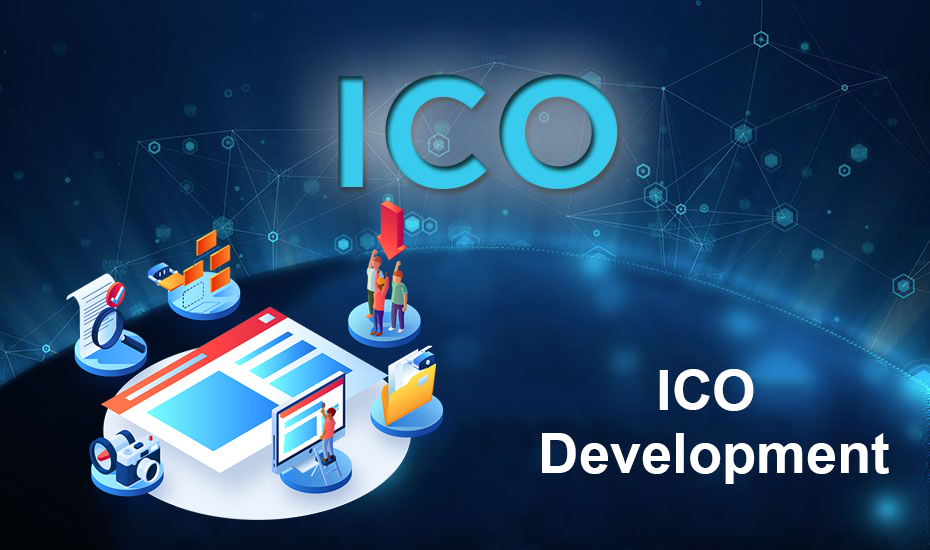ICO Development: Benefits, Risks, and Regulatory Measures
Are you looking to develop an ICO?
In recent years, Initial Coin Offerings (ICOs) have emerged as a popular method for startups and projects to raise capital in the cryptocurrency space. While ICOs offer various benefits, they also come with inherent risks and regulatory challenges.
In this blog post, we will explore the benefits, risks, and regulatory measures associated with ICO development. Before that let us understand about ICO.
What is an ICO?
An Initial Coin Offering (ICO) is a fundraising method used by blockchain-based projects to raise capital by issuing digital tokens to investors. These tokens typically represent a stake or utility within the project’s ecosystem.
Investors purchase these tokens using cryptocurrencies such as Bitcoin or Ethereum during the ICO period. ICOs provide startups with a decentralized way to raise funds globally, while investors may receive potential returns on their investment if the project succeeds.
However, ICOs also come with risks, including regulatory uncertainty, scams, and market volatility.

Benefits of ICO Development
ICO development is beneficial to start ups as well as enterprises. We have listed the major advantages of ICO development for your business.
Access to Capital
ICOs provide startups and projects with a decentralized way to raise capital from a global pool of investors. This accessibility to funding can help fuel innovation and accelerate the development of blockchain-based projects.
Community Engagement
ICOs allow projects to engage with their community of supporters and early adopters. By offering tokens to investors, projects can incentivize participation and build a dedicated community around their product or platform.
Liquidity
Tokens issued through ICOs can be traded on cryptocurrency exchanges, providing liquidity to investors and creating opportunities for price appreciation. This liquidity can attract additional investors and increase the project’s visibility in the market.
Token Utility
ICOs enable projects to tokenize assets, services, or utilities, allowing for seamless integration within their ecosystems. Tokens can represent ownership rights, access to platform features, or voting rights, adding value to the project and its users.
Risks of ICO Development
Regulatory Uncertainty
The regulatory landscape surrounding ICOs is complex and constantly evolving. Projects may face legal challenges and regulatory scrutiny from authorities in different jurisdictions, leading to potential fines, penalties, or even shutdowns.
Scams and Fraud
The lack of regulation in the ICO market has made it susceptible to scams and fraudulent activities. Investors may fall victim to Ponzi schemes, fake projects, or phishing attacks, resulting in financial losses and reputational damage.
Volatility
The value of tokens issued through ICOs can be highly volatile, subject to market speculation and manipulation. Investors may experience significant price fluctuations, leading to uncertainty and risk.
Security Vulnerabilities
Smart contracts and token platforms used in ICOs may be vulnerable to security breaches, hacks, or exploitation. Poorly designed smart contracts or inadequate security measures can result in the loss of investor funds and damage to the project’s reputation.
Regulatory Measures for ICO Development
Legal Compliance
Projects conducting ICOs must adhere to applicable laws and regulations in the jurisdictions where they operate.
This includes complying with securities laws, anti-money laundering (AML) regulations, and know-your-customer (KYC) requirements to mitigate legal risks.
Transparency and Disclosure
ICO projects should provide transparent and accurate information to investors, including details about the project, team members, tokenomics, use of funds, and risk factors.
This transparency builds trust and confidence among investors and reduces the likelihood of fraud.
Investor Protection
Regulatory measures should aim to protect investors from scams, fraud, and misconduct in the ICO market.
This may involve implementing investor accreditation requirements, conducting due diligence on projects, and providing investor education and awareness programs.
Regulatory Oversight
Government agencies and regulatory bodies play a crucial role in overseeing ICO activities and enforcing compliance with relevant laws and regulations.
Regulatory frameworks should be flexible, adaptive, and technology-neutral to accommodate innovation while safeguarding investor interests.
Whom to Hire For ICO Development Services?

For top-notch ICO development services, look no further than Technoloader. As a leading ICO development company, they offer comprehensive solutions tailored to your project’s needs.
With a team of experienced developers and blockchain experts, they provide end-to-end ICO development services, from conceptualization to deployment. Their expertise in blockchain technology and ICO market trends ensures that your project stands out and attracts investors.
Trust their team to deliver secure, reliable, and innovative ICO solutions that drive success and propel your project to new heights in the ever-evolving world of cryptocurrency.
Hire Technoloader for your ICO development needs and make your project a success.

